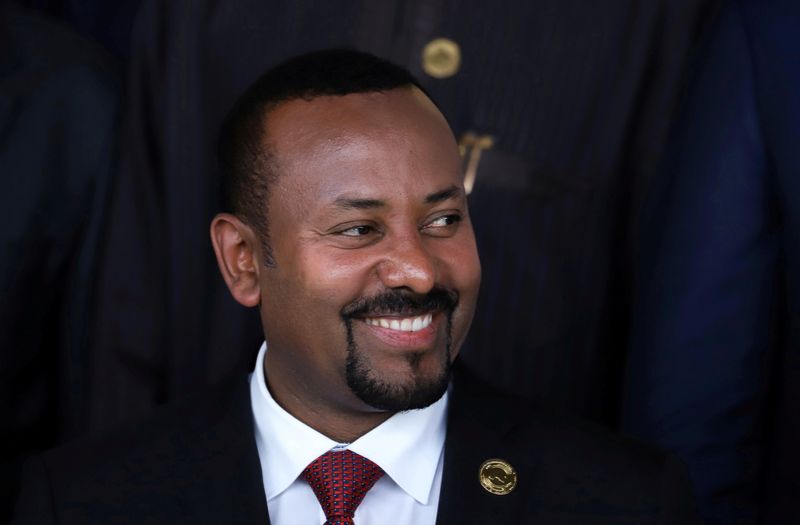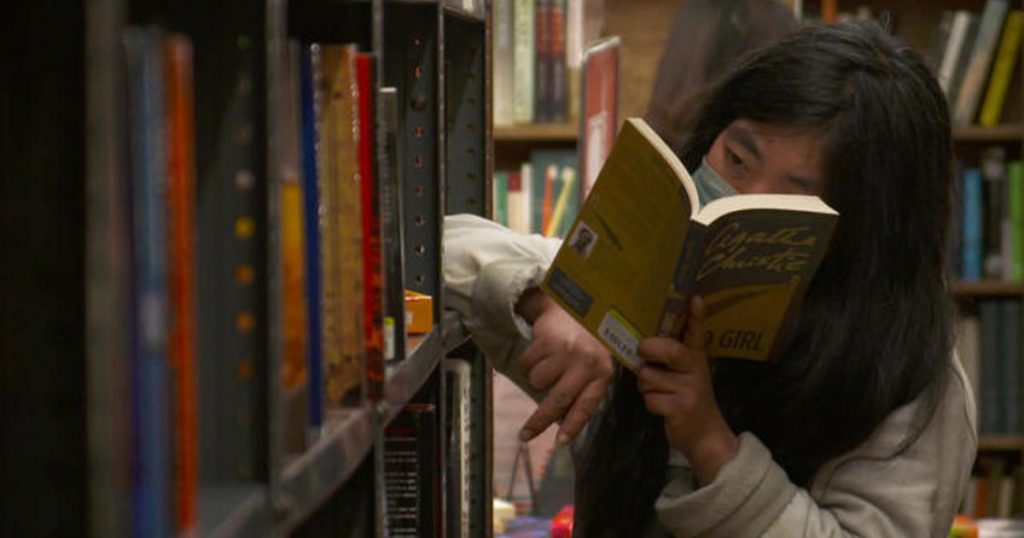
FILE PHOTO: Ethiopia’s Prime Minister Abiy Ahmed poses for a photograph during the opening of the 33rd Ordinary Session of the Assembly of the Heads of State and the Government of the African Union (AU) in Addis Ababa, Ethiopia, February 9, 2020. REUTERS/Tiksa Negeri/File Photo
November 8, 2020
By Giulia Paravicini and Dawit Endeshaw
GONDAR, Ethiopia (Reuters) – Ethiopia’s Prime Minister Abiy Ahmed replaced his army chief, the head of intelligence and the foreign minister on Sunday as the military continued a five-day old offensive in the restive Tigray region with a new round of air strikes.
Abiy’s office did not give reasons for the personnel changes, which come as he is pursuing a military campaign against the Tigray People’s Liberation Front (TPLF), a powerful ethnic faction that led the ruling coalition for decades until Abiy took office in 2018.
Abiy’s office said in a statement that Deputy Prime Minister Demeke Mekonnen had been appointed foreign minister while deputy army chief Birhanu Jula was promoted to army chief of staff.
Temesgen Tiruneh, who was president of the Amhara region, was appointed as the new intelligence chief. Amhara regional state forces have been fighting alongside their federal counterparts in Tigray.
Countries in the region fear that the fighting could spark a civil war in Africa’s second most populous nation and destabilise the Horn of Africa region.
Tigrayans dominated Ethiopian politics for decades until Abiy reorganised the ruling coalition into a single party which the TPLF refused to join.
Tensions grew further after Tigray held a regional election in September, against the wishes of the federal government, which called the polls illegal. On Wednesday, Abiy launched military operations in Tigray in response to what he said was an attack on federal troops.
In a televised address on Sunday, Abiy accused the TPLF of preparing for war with the federal government since 2018, saying that the group siphoned development funds to buy weapons and train militias.
He did not provide any evidence and TPLF officials were not immediately available for comment.
HUMANITARIAN DISASTER
Nine million people risk displacement from the escalating conflict in Tigray, the United Nations said in a report published on Saturday, warning that the fighting was blocking food and other aid.
About 600,000 people in Tigray depend on food aid to survive, while another 1 million receive other forms of support, all of which are disrupted, the U.N. Office for the Coordination of Humanitarian Affairs (OCHA) said.
Clashes between federal troops and Tigrayan forces had broken out in eight locations in the region, according to the report.
The pope expressed concern about the conflict in his weekly address from the Vatican on Sunday.
“I am following with concern the news from Ethiopia. While calling on the temptation of armed conflict to be cast aside, I invite everyone to prayer and brotherly respect, to dialogue and peaceful reconciliation of discord,” Pope Francis said.
An Ethiopian military plane bombed a missile and artillery site next to the airport in Tigray’s capital Mekelle on Sunday, one military and two diplomatic sources told Reuters.
It was not immediately clear what was destroyed in the bombing.
The airplane left a military base in the city of Bahir Dar in the neighbouring Amhara region, the sources said.
The army was in control of several towns near the border including Dansha and Shire, new army chief Birhanu told a state-run newspaper on Sunday, without saying when the army seized the areas.
It was impossible to verify the report as communications systems in the Tigray region have been shut down since Wednesday.
Abiy spoke on Saturday with U.N. Secretary-General Antonio Guterres, who “offered his good offices”, in the quest for a peaceful resolution of the crisis, the U.N. spokesman said.
The U.N. chief also spoke with the African Union chief Moussa Faki Mahamat and Sudanese Prime Minister Abdalla Hamdok in his capacity as chair of the regional Africa group IGAD, the spokesman added.
But Abiy is not listening to requests for mediation, diplomats and security officials in the region have told Reuters. He did not issue a statement on the call with the U.N. chief.
Instead, during his address on TV on Sunday, he called on the international community to “understand the persistent transgressions” by the “TPLF clique”.
(Additional reporting by Dawit Endeshaw in Addis Ababa, Michelle Nichols in New York, Nazanine Moshiri in Nairobi and Stephen Jewkes in Rome; Writing by Maggie Fick; Editing by George Obulutsa, Raissa Kasolowsky and Susan Fenton)

